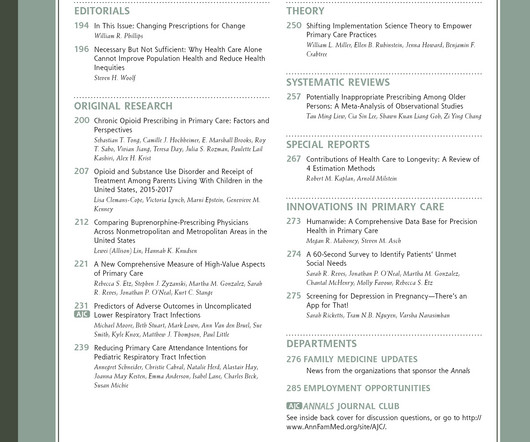Oral versus intravenous antibiotics for the initial treatment of acute pyelonephritis in adults: a systematic review [Acute and emergency care]
Annals of Family Medicine
NOVEMBER 20, 2024
The most recent international guidelines for the management of acute uncomplicated pyelonephritis in adults (2010) recommend treatment to be initiated with a single dose of intravenous (IV) ceftriaxone or an aminoglycoside when the prevalence of fluoroquinolone resistance is unknown or exceeds 10%. Intervention N/A.














Let's personalize your content